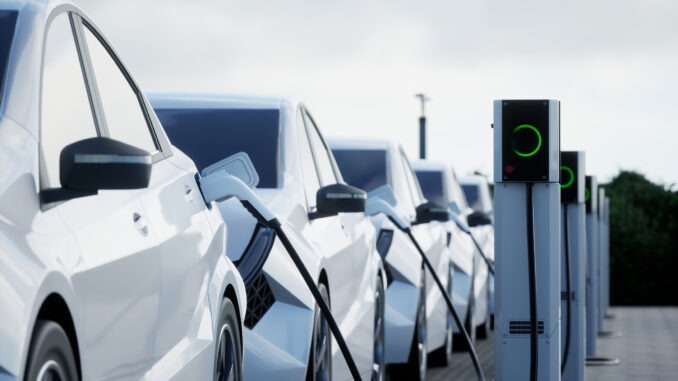
By CaraLynn Caulfield
A federal court has ordered the restoration of $120 million in electric vehicle (EV) infrastructure funding for New York, a move expected to significantly benefit Long Island’s growing EV community.
On June 26, New York Attorney General Letitia James, alongside a coalition of 16 other state attorneys general, won a preliminary injunction against the U.S. Department of Transportation (DOT) for illegally freezing federal funds intended for EV charging networks. The freeze followed a January 29 executive order aimed at dismantling the federal government’s so-called “electric vehicle mandate.” This order led the Federal Highway Administration (FHWA) to bypass Congress and suspend billions in funding allocated under the bipartisan Infrastructure Investment and Jobs Act (IIJA).
“This administration cannot undermine the authority of Congress and the Constitution just because the president does not like a policy that was passed with bipartisan support,” James said. “Strong support for electric vehicle infrastructure is critical to tackling pollution and the climate crisis. This decision will help ensure states get the funding they need to support electric vehicles.”
The IIJA allocated $5 billion nationwide for EV charging infrastructure through the National Electric Vehicle Infrastructure (NEVI) Formula Program. New York’s share of roughly $120 million had been frozen but will now be restored, enabling the continuation of projects already underway — including 11 charging stations installed across the state. These efforts will extend across New York City, the Hudson Valley, and Long Island.
According to Rosemary Mascali, chair of Drive Electric Long Island’s Education & Outreach Committee, the reinstated funding will have a meaningful impact on EV drivers throughout the region.
“Restoring the NEVI funding will have a positive impact on both current and prospective EV drivers on Long Island,” Mascali said. “While most EV owners on Long Island charge at home since we are fortunate to have 82% single family homes on Long Island, restoring the funding will result in both current and prospective EV drivers having access to more charging stations when they take road trips upstate and across the country.”
Mascali also highlighted the importance of this funding in encouraging EV adoption among renters and residents of multi-family housing.
“One of the biggest concerns of prospective EV owners is where to charge their EVs and having enough charge for longer road trips,” she said. “The NEVI funding will help to make sure charging stations are available all-around New York State and the nation. It will also help alleviate the concerns of Long Islanders that live in multi-family dwellings such as apartment rentals, co-ops and condos who don’t have access to on-premise charging.”
EV adoption on Long Island continues to grow steadily. As of June 11, there were 78,077 EVs registered on Long Island — up from 71,171 at the end of 2024, according to data from the New York State Energy Research and Development Authority (NYSERDA). Despite some national headlines suggesting a consumer backlash against Tesla CEO Elon Musk, Mascali said local EV interest has remained strong.
“While public sentiment toward Musk may have shifted, we haven’t seen it translate into a major drop-off locally,” she said. “Tesla models still dominate the market here — and as of May 31, they made up 42 percent of all EVs receiving state rebates.”
New York residents currently benefit from a combination of state and federal incentives designed to make EV ownership more accessible. The Drive Clean Rebate offers up to $2,000 off the purchase or lease of more than 60 eligible new EV models. In addition, many buyers may also qualify for a federal tax credit of up to $7,500 through the Inflation Reduction Act.
But some of those benefits could soon vanish. A federal budget proposal backed by President Donald Trump would eliminate the $7,500 EV tax credit for new vehicles — as well as a $4,000 credit for used EVs — after September. Advocates say this makes restored infrastructure funding even more urgent, especially if financial incentives start disappearing.

